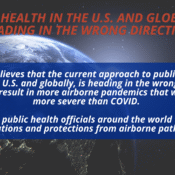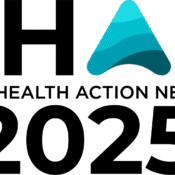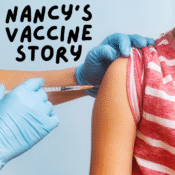
Statement on the Current Trajectory of U.S. Public Health Policy
We at PHAN are very disheartened at the current situation in U.S. public health policyLaws and regulations aimed at protecting public health. and infrastructure. We believe the current approach to how public health is being handled in the U.S. and globally is heading in the wrong direction for humanity, in a manner that will damage us for generations. We’re seeing a vast increase in distrust and disinformation spread about airborne pathogens, pharmaceutical interventions like vaccines, and non-pharmaceutical interventions like masks and air purification that are moving us backward in time. The U.S. has historically been a leader in public health. The loss of our credibility, public health funding, and scientific data will resonate into future generations at an extreme human and environmental cost.
Vaccines are widely regarded as one of the most significant public health achievements of the last century. Vaccines have saved hundreds of millions of lives since they were introduced as a public health measure. They have led to the complete eradication of two diseases: smallpox, declared eradicated in 1980, and rinderpest, a viral disease of cattle and other livestock, declared eradicated in 2011. They’ve also reduced the incidence of many other diseases like polio. The polio vaccine has virtually eliminated a disease that once caused paralysis and death in tens of thousands of babies, children, and adults annually. Before the measles vaccine was available, measles infected millions of people and was a major cause of death among children. Vaccines have dramatically reduced cases and deaths, and measles is now a potential target for global eradication. A recent study estimated that vaccines have saved an estimated 154 million lives globally since 1974 alone. This is a rate of about six lives saved every minute. Of those, 95% were children younger than five years old. Measles vaccines were responsible for saving about 60% of those lives. (https://pubmed.ncbi.nlm.nih.gov/38705159/, )
The introduction of widespread vaccination programs is a major reason for the dramatic increase in human life expectancy over the last century. In 1900, the average life expectancy in the U.S. was around 47 years, with infectious diseases being the primary cause of death. By the late 1990s, chronic diseases had become the leading causes of death, and life expectancy had risen by over 30 years, a trend seen in most developed countries. (https://pmc.ncbi.nlm.nih.gov/articles/PMC10803505/)
But we’re now seeing a growing distrust in vaccines. This is in part due to just how effective they’ve been and they’re now being taken for granted, but it’s also in part due to rampant misinformation and disinformation, sometimes coming from the highest global public health authorities. Last year a U.S. Gallup poll showed that the percentage of parents who say it’s “very” or “extremely important” for their children to get vaccinated fell from 94 percent in 2001 to 69 percent in 2024. (https://news.gallup.com/poll/648308/far-fewer-regard-childhood-vaccinations-important.aspx)
Vaccines are a vital component of good public health care in the U.S. and globally. PHAN supports widespread availability of vaccines to everyone who needs them, and we’ll continue to share verified data about their efficacyThe effectiveness of a treatment or intervention under ideal conditions..













